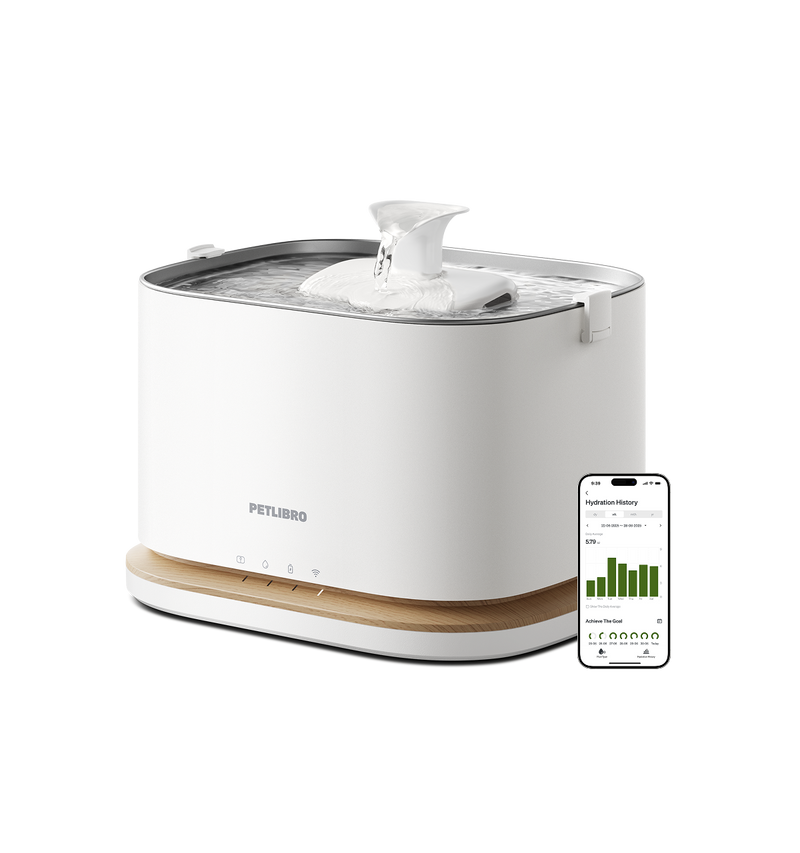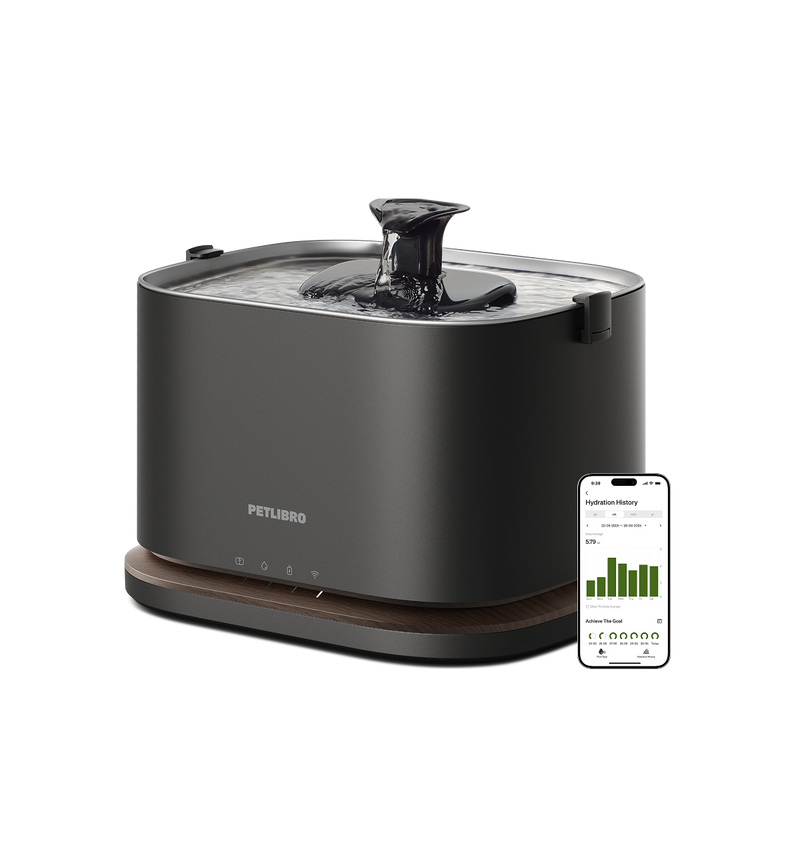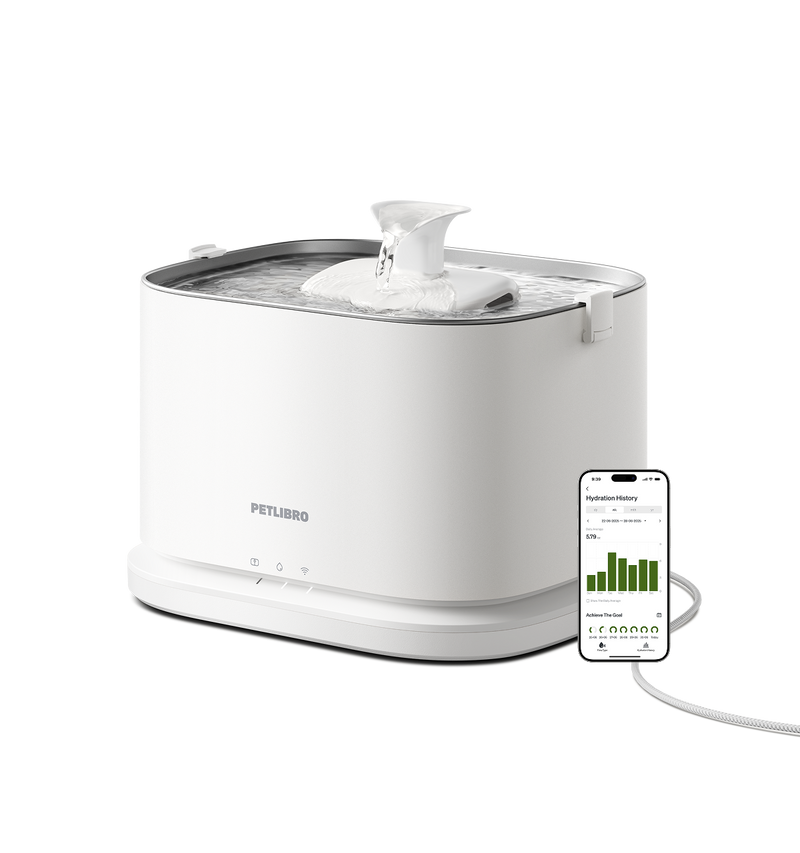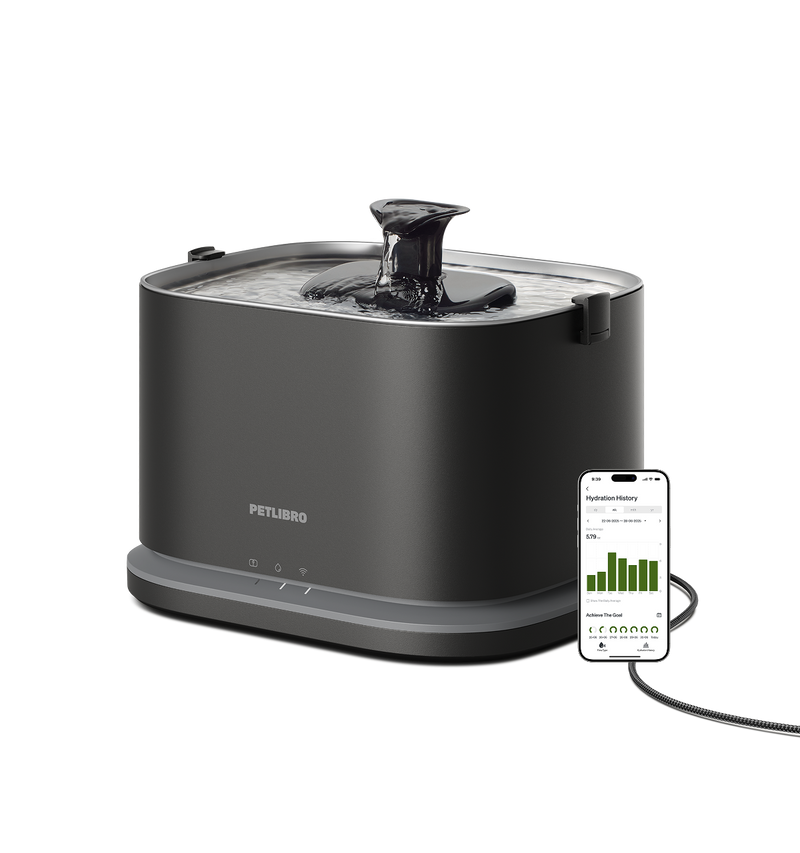


























By subscribing, you agree to receive email marketing from Petlibro. Privacy Policy | Terms of Service




Open to legal U.S. residents, 18 years or older. Void where prohibited. Giveaway begins on 08/26/2025 and ends on 09/15/2025 at midnight PST. Three winners will each receive a limited-edition Petlibro PR Kit, which includes the Scout Smart Camera and select branded merch. Winners will be chosen at random and notified via Instagram or email (depending on entry format) by 09/30/2025. If a winner does not respond within 48 hours, another may be selected. Odds of winning depend on the total number of eligible entries received. Only one email entry per person will be counted, though additional entries may be submitted through the bonus methods described above. Petlibro is not liable for any issues that arise from participation or use of the prize. Personal information will be collected and handled in accordance with our Privacy Policy.




Open to legal U.S. residents, 18 years or older. Void where prohibited. Giveaway begins on 08/26/2025 and ends on 09/15/2025 at midnight PST. Three winners will each receive a limited-edition Petlibro PR Kit, which includes the Scout Smart Camera and select branded merch. Winners will be chosen at random and notified via Instagram or email (depending on entry format) by 09/30/2025. If a winner does not respond within 48 hours, another may be selected. Odds of winning depend on the total number of eligible entries received. Only one email entry per person will be counted, though additional entries may be submitted through the bonus methods described above. Petlibro is not liable for any issues that arise from participation or use of the prize. Personal information will be collected and handled in accordance with our Privacy Policy.


Your pet's kibble and cans likely never crossed your mind as an environmental concern. But the truth is the pet food industry relies on resource-intensive methods that take a toll on our planet.
From energy-guzzling production to food waste in landfills, the pet food we buy influences the environment in big and small ways. As pet parents, making sustainable feeding choices is a simple yet impactful step we can take. This guide will uncover how the ingredients and packaging of pet foods impact the earth, air, and water. Armed with this knowledge, we can make wiser decisions to shrink the pawprint of even the furriest members of our families.
So grab a treat and a few toys for your pets, and get ready to explore the not-so-obvious ways their food affects the environment!

The production and consumption of traditional pet foods have a significant environmental impact, resulting in resource depletion, greenhouse gas emissions, and waste.
For starters, pet food manufacturing requires massive amounts of natural resources. The meat, grains, and packaged materials are used to produce 1 million tons of CO2 each year in the U.S. alone. Every year, about 9800–16,900 million tonnes of CO2 are created via the food supply chain. Livestock farming for pet food ingredients also consumes large quantities of water, land, and fertilizer.
Next, the emissions generated by pet food production are substantial. According to some estimates, pet food manufacturing accounts for 25-30 million tons of CO2 equivalent emissions annually. The emissions intensity of pet food is comparable to that of some meat industries for human consumption.
On top of this, uneaten or spoiled pet food results in huge volumes of food waste. In the U.S., over 7 million tons of pet food end up in landfills each year. This waste further contributes to greenhouse gases as organic material decomposes in landfills without oxygen.
It's clear that choosing more sustainably produced pet foods could help reduce the environmental impacts of pet ownership. Options like fresh, raw, or dehydrated products with minimal packaging, locally sourced ingredients, and foods with lower meat content all represent more eco-friendly alternatives. With around 85 million pets on the planet, even small shifts in pet feeding habits could make a big difference.
More info here: https://onist.co/pages/climate-impact
There are several approaches to minimize packaging waste and reduce the environmental footprint of pet food without compromising nutrition.
First, homemade pet diets using sustainable ingredients offer a truly zero-waste option. Home-cooked meals eliminate pesky packaging by sourcing raw or dehydrated meats, vegetables, and supplements in bulk and removing excess ingredients from reusable containers. However, ensuring nutritional balance can prove challenging without veterinary guidance.
Next, purchasing pet food in bulk bags rather than pre-packaged containers can substantially reduce waste. Many retailers offer the option to bring your own container or purchase in 50-lb bags rather than smaller cans and pouches. Just be sure to store open bags properly to prevent spoilage.
Some pet food companies have also begun to focus on eco-friendly packaging. Some offer bag-in-box options made from recyclable paper rather than multi-layered pouches. Others utilize minimal single-material pouches that are fully recyclable. Though still generating some waste, these designs improve sustainability.
Finally, some companies provide zero-waste options via subscription. Customers select a plan, and food arrives each month in reusable containers that are returned, cleaned, and refilled.

While automatic pet feeders make life more convenient for busy pet owners, their environmental footprint is mixed.
On the positive side, programmed feeders can minimize overfeeding and reduce food waste. Feeders ensure no extra kibble is left uneaten by portioning out exact meal amounts based on a pet's daily calorie needs. This can translate to less wasted food and savings on purchases over time.
However, the energy consumption and materials used in manufacturing feeders are less eco-friendly. Most models run on batteries or electricity, requiring either disposable or constant power. Their plastic and electronic components are also difficult to cycle at the end of life. As with any "smart" device, environmental costs are associated with production.
To offset these impacts, pet owners can maximize the longevity of their automatic feeders. Using rechargeable batteries instead of disposables, setting power-saving modes, and repairing components as needed can extend a feeder's lifespan by years. And when eventual replacement is required, choosing models made from sustainably sourced and recyclable materials helps reduce long-term waste.
While pets undoubtedly bring us joy, it's important to consider their impact on the environment and how responsible ownership practices can mitigate these effects.
A common misconception is that just owning a pet is inherently eco-friendly. Caring for animals generates waste, consumes resources, and contributes to greenhouse gas emissions. However, there are actions owners can take to minimize these impacts.
Adopting rescued pets instead of buying from breeders helps reduce the demand for commercially raised animals. Spaying and neutering prevent unwanted litters that end up in already crowded shelters. Feeding pets' diets sourced sustainably and with low waste can significantly reduce the environmental footprint of their food. Additionally, ensuring proper disposal of pet waste and keeping animals indoors helps protect natural ecosystems from potential harm. And choosing "green" products like eco-friendly grooming supplies and waste bags helps make everyday pet care a bit more Earth-friendly.
Additional considerations include pets' impact on wildlife, especially for outdoor cats. While providing mental health benefits for owners, they also pose threats to native species. Limiting outdoor access and housing pets can help mitigate these predatory effects.